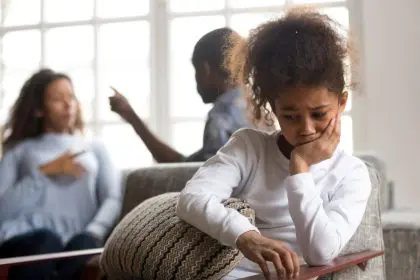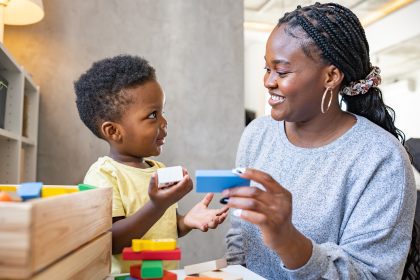Divorce reverberates through every facet of a family’s life, casting ripples of change that are keenly felt, particularly by children. The emotional tumult that accompanies this event underscores the critical need for unwavering support for the youngest members of the family. Within this landscape of upheaval, family counseling post-divorce emerges as a sanctuary, a refuge where children can voice their emotions and find solace amidst the shifting tides. It serves as a guiding light in navigating the intricate emotions and adapting to the seismic alterations brought on by divorce. In this article, we uncover seven pivotal reasons why engaging in family counseling — especially after the announcement of a divorce — stands as a cornerstone in safeguarding the well-being and emotional resilience of your children.
1. Emotional Resilience: The dissolution of a family unit can trigger a myriad of emotions in children: confusion, anger, sadness and anxiety. Family counseling provides a safe space for them to express these feelings openly and learn healthy coping mechanisms to navigate their emotions.
2. Communication Skills: Divorce can disrupt communication lines within the family. Counseling equips children with effective communication strategies, enabling them to articulate their emotions and concerns, fostering better understanding and empathy among family members.
3. Adjustment and Adaptation: Adapting to the new family dynamics post-divorce can be challenging for children. Counseling sessions offer guidance on adjusting to the changes, aiding them in accepting the new reality and fostering a sense of stability.
4. Conflict Resolution: Children often grapple with the fallout of parental conflicts during and after divorce. Counseling equips them with conflict resolution skills, minimizing the impact of parental discord on their emotional well-being.
5. Coping Strategies: Through counseling, children learn constructive ways to cope with the stress and changes brought about by divorce. These coping mechanisms empower them to navigate future challenges with resilience.
6. Maintaining Healthy Relationships: Family counseling instills the importance of healthy relationships, teaching children how to foster positive connections with both parents despite the divorce. It aids in preserving the parent-child bond and encourages a supportive environment.
7. Long-term Emotional Health: Investing in counseling post-divorce contributes significantly to a child’s long-term emotional well-being. It lays the foundation for them to process their emotions, build resilience and thrive in their personal and interpersonal lives.
While divorce is a challenging chapter for any family, seeking family counseling can significantly alleviate the emotional burden on children. It’s essential to prioritize their mental and emotional health during this transitional phase.
In the aftermath of a divorce, family counseling emerges as a beacon of hope amidst the uncertainty and emotional upheaval. Its profound impact extends far beyond the counseling room, offering children the invaluable support and guidance they need to traverse the complexities of separation.
By fostering emotional resilience, counseling provides a sturdy foundation upon which children can build their coping mechanisms. It becomes a safe haven where communication skills are honed, enabling children to articulate their emotions and needs more effectively. This newfound ability not only aids in navigating the immediate challenges but also equips them with lifelong tools for managing difficult situations.
Moreover, counseling plays a pivotal role in facilitating adaptation. It guides children through the process of accepting and embracing the changes, paving the way for smoother transitions into their new reality. The emphasis on nurturing healthy relationships — even amid the divorce — fosters an environment conducive to emotional growth and stability.
Ultimately, investing in children’s emotional health through family counseling today is an investment in a brighter and more stable tomorrow. It lays the groundwork for resilient individuals capable of facing life’s challenges with strength and emotional well-being, ensuring they step into the future empowered and equipped to thrive. Remember, the support provided today echoes into their future, shaping a path toward a more resilient and fulfilling life.
This story was created using AI technology.
















